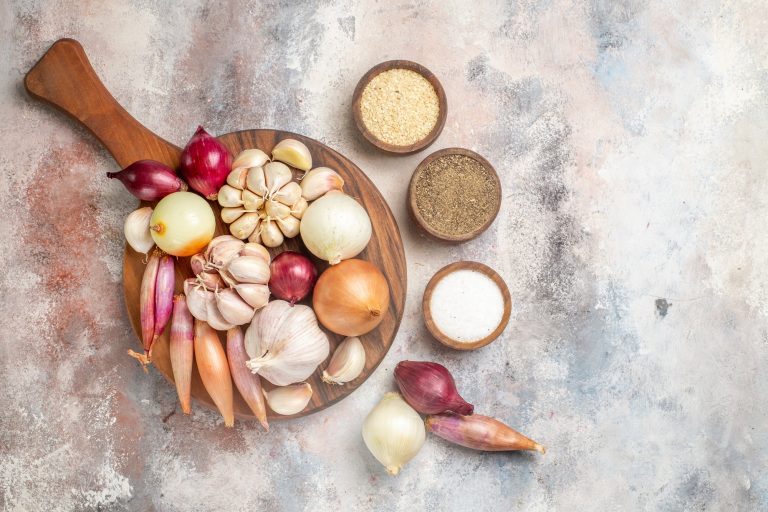Forbidden vegetables in dog nutrition is a very important topic for their health. Healthy dog nutrition is essential for maintaining well-being and preventing health problems. While many vegetables are recommended in a dog’s diet to ensure a varied intake of nutrients, there are also some that should be avoided.
In light of this information, it is crucial to carefully explore the forbidden vegetables in dog nutrition, to understand why some potentially beneficial for us might be contraindicated for them. Through this careful analysis, we can ensure proper and healthy nutrition for pets, avoiding the risks associated with inadequate consumption of specific vegetables.
CONTENT:
Are dogs allowed all veggie?
No, not all vegetables are suitable or safe for dogs. Of course, many dogs benefit from getting nutrients from healthy vegetables, but there are also some vegetables that can be bad for them. It is important to know which vegetables are allowed and healthy for dogs and which should be avoided.
Dogs, like their owners, can benefit significantly from adding healthy vegetables to their daily diet. Carrots, for example, are an excellent source of fiber and vitamins such as beta-carotene, which help maintain healthy vision and a strong immune system. Adding pumpkin jam can provide additional benefits due to its high fiber content and nutrients such as vitamin A and iron.
Peas, another commonly recommended vegetable, provide essential protein and carbohydrates, helping to maintain your dog’s energy levels. Broccoli is an excellent choice for providing vitamins and antioxidants, which can support overall health and reduce the risk of chronic conditions.
Sweet potatoes, another nutritious option, provide carbohydrates and fiber, making them an excellent source of sustainable energy for our four-legged friends. They also contain vitamin A, essential for the proper functioning of the skin and eyes.
However, it is vital to be aware that not all vegetables are safe for dogs. There are some vegetables that should be strictly avoided, such as onions and garlic, which contain substances that can damage red blood cells and lead to anemia. Green tomatoes should also be removed from the canine menu, as they contain tomatine, a substance toxic to dogs.
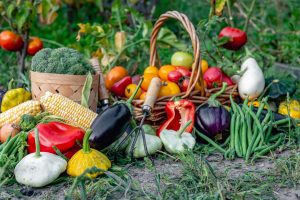
Top 10 Forbidden Vegetables in dog nutrition
On the top of the 10 forbidden vegetables in dog nutrition are onion, garlic, avocado, and even tomatoes. In order to better understand the negative effects that these vegetables bring to dogs’ health, we will analyze each one separately:
1. Onion and Garlic
Substances such as propylene disulfide can affect dogs’ red blood cells, causing anemia. Avoid them strictly to maintain the health of the circulatory system of your four-legged friends.

2. Green Tomatoes
Containing tomatine, a substance toxic to dogs, green tomatoes can cause gastrointestinal problems and affect the nervous system. Opt for safe alternatives to avoid associated risks.
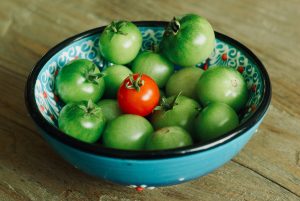
3. Avocado
Persina in avocados can cause serious symptoms such as vomiting, diarrhea and, in extreme cases, death. It is essential to avoid any foods containing avocado in your dog’s diet.
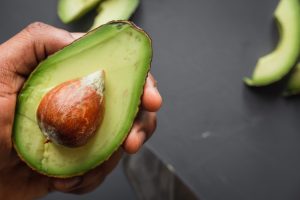
4. Raw potatoes
Containing solanine, raw potatoes can affect the nervous and digestive systems of dogs. Make sure vegetables in this category are safe to cook and eat.
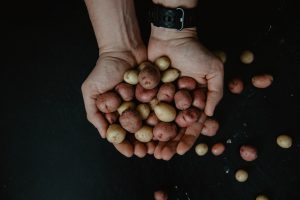
5. Vegetables from the Allium Family (Onions, Garlic, Leeks)
These vegetables contain sulfur compounds that can destroy blood cells, causing anemia. Avoid them to protect your dog’s circulatory system.
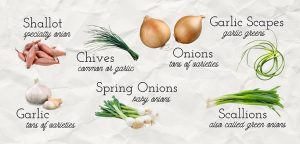
6. Wild Garlic
Substances similar to those found in regular garlic are also present in wild varieties, posing a health risk to dogs.

7. Eggplant
Solanine and oxalates in eggplant can cause digestive and kidney problems in dogs. It is recommended to avoid giving them this type of vegetables.

8. Cauliflower
Consumed in excess, cauliflower can cause digestive upset and flatulence in dogs. Monitor amounts and gradual introduction into their diet.
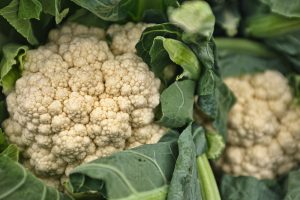
9. Raw Root Vegetables (Radishes, Raw Carrots)
They can cause digestive problems and pose a risk of choking or intestinal blockage. Make sure these vegetables are cooked or cut into small, safe pieces.
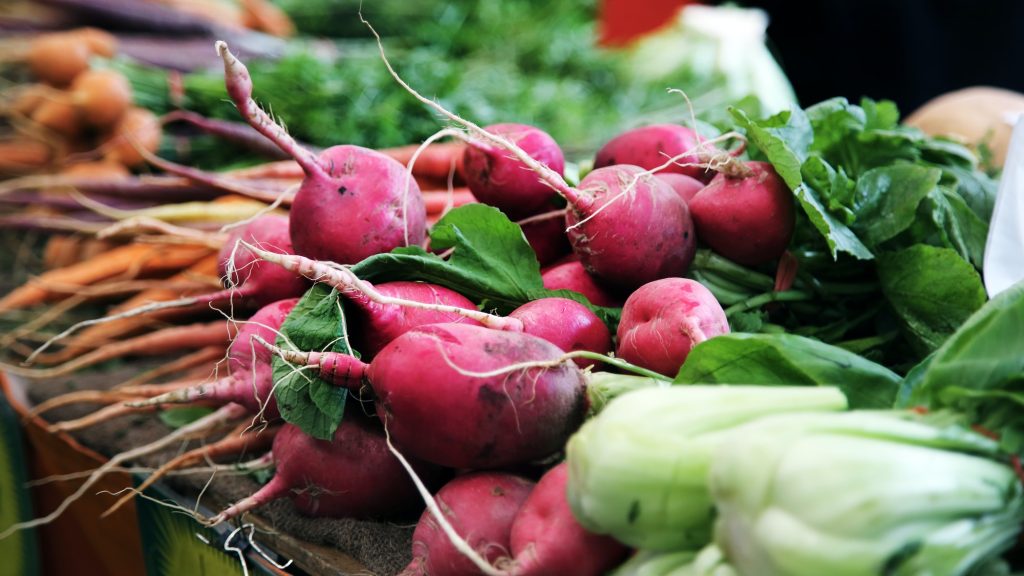
10. Chili
The capsaicin in hot peppers can irritate dogs’ stomachs and digestive tracts, causing discomfort and vomiting. Avoid spicy foods to prevent these unwanted effects.
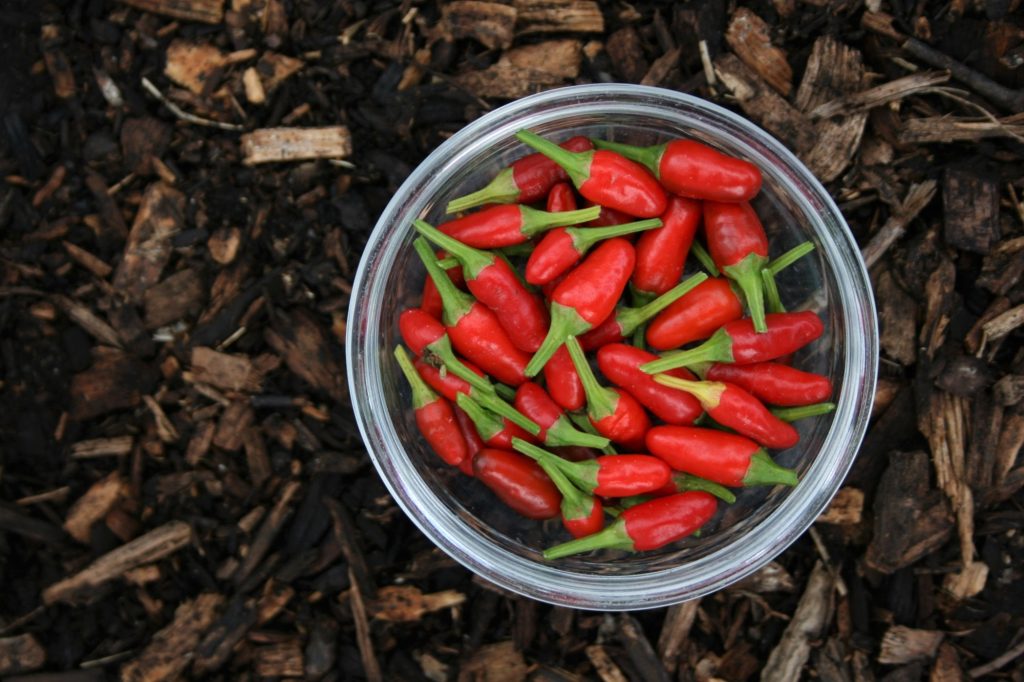
Can dogs have cucumbers?
This question is often met, and the answer is yes. In general, dogs can eat cucumbers in moderation and in raw form. Cucumbers are a good source of water, fiber and nutrients for dogs. They can add a crunchy texture and pleasant flavor to a dog’s diet, providing a healthy snack option.
However, it is important to consider a few things:
- Seeding and peeling: Be sure to remove the seeds and skin from cucumbers before giving them to your dog. The peels can be difficult to digest, and the kernels can present a choking or intestinal obstruction risk.
- Moderation: Offer cucumbers in moderate amounts. As with other foods, excessive consumption can lead to digestive disorders.
- Individual allergies: In some cases, dogs may have individual sensitivities to certain vegetables. Observe your dog’s reaction after offering cucumbers for the first time and consult a veterinarian if there are any concerns or adverse reactions.
Overall, cucumbers can be a healthy snack and can be added to your dog’s diet with caution, making sure they are prepared in a safe way and are well tolerated by your pet.

